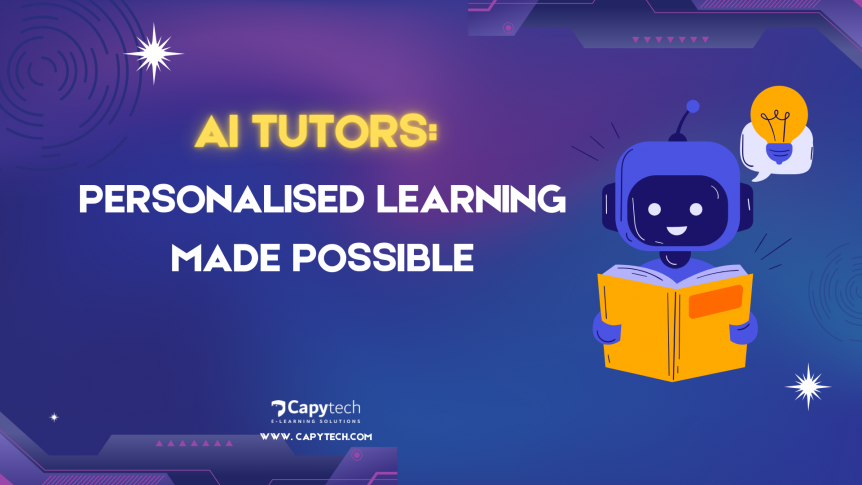AI Tutors: Personalised Learning Made Possible
The landscape of education is undergoing a monumental shift, thanks to the integration of artificial intelligence (AI) in teaching and learning processes. AI tutors, a groundbreaking development in this field, are transforming the way students learn by offering personalised, accessible, and efficient educational experiences. This blog post delves into the realm of AI tutors, exploring their benefits, challenges, and the future they hold for personalised learning.
Understanding AI Tutors
At its core, an AI tutor is a programmed educational software that uses artificial intelligence to provide tutoring services. These AI systems are designed to mimic the guidance a human tutor would offer, but with the added advantages of scalability, accessibility, and personalisation. AI tutors can adapt to a learner’s pace, provide immediate feedback, and tailor learning materials to meet individual needs, making education more effective and engaging.
The Value of Personalised Learning
Personalised learning recognises that each student has unique needs, learning styles, and pace. Traditional educational models often fall short in catering to these differences, leading to gaps in understanding and engagement. AI tutors bridge this gap by analysing data on a student’s performance and preferences to customise the learning experience. This approach not only enhances comprehension and retention but also keeps learners motivated and engaged, a principle echoed in Malone’s Theory of Intrinsically Motivating Instruction.
Benefits of AI Tutors
The integration of AI tutors in e-learning offers several benefits. These include:
- Accessibility: AI tutors are available 24/7, making learning possible anytime and anywhere.
- Customisation: They provide personalised learning experiences, adapting to the learner’s evolving needs.
- Immediate Feedback: Learners receive instant feedback, which is crucial for learning and improvement.
- Efficiency: AI tutors can handle repetitive tasks, allowing human tutors to focus on complex educational needs. Their efficiency in collecting module feedback is discussed in detail here.
Moreover, AI tutors play a significant role in breaking language barriers in tutoring, making education more inclusive and accessible to non-native speakers.
Challenges of AI Tutors
While the benefits are substantial, the implementation of AI tutors is not without challenges. These include:
- Technical limitations: AI systems are only as good as the data and algorithms they are built upon, which may limit their effectiveness in certain complex educational scenarios.
- Privacy concerns: The collection and analysis of student data raise privacy and security issues that need to be addressed.
- Lack of human touch: AI cannot fully replicate the empathy and emotional support a human tutor can offer, which is often crucial for student motivation and well-being.
Integrating AI Tutors in E-Learning
To maximise the benefits of AI tutors while mitigating challenges, it’s essential to integrate them thoughtfully into e-learning platforms. This integration involves leveraging AI to complement, not replace, human instructors. For example, AI tutors can handle initial learning stages or repetitive practice, while human tutors can focus on more complex, creative, or emotionally sensitive teaching tasks.
Quality assurance also plays a critical role in ensuring the effectiveness of AI tutors in e-learning. As discussed in Essential Quality Assurance Tips for E-Learning Development Project, a thorough QA process is vital for identifying and addressing any issues that might impede learning.
The Future of Personalised Learning with AI Tutors
The future of personalised learning with AI tutors looks promising. As technology advances, AI tutors are expected to become more sophisticated, offering even more personalised and engaging learning experiences. Furthermore, as understanding and addressing the limitations and ethical concerns of AI in education improves, the integration of AI tutors in e-learning platforms is likely to become more widespread and effective.
In conclusion, AI tutors represent a significant step forward in making personalised learning a reality. By harnessing the power of artificial intelligence, these digital tutors offer a scalable, efficient, and effective way to meet the diverse needs of learners worldwide. As we continue to navigate the challenges and opportunities presented by AI in education, the potential for transformative learning experiences is immense.
For more insights into the future of e-learning and the role of technology in education, explore our other posts on Capytech’s blog.
